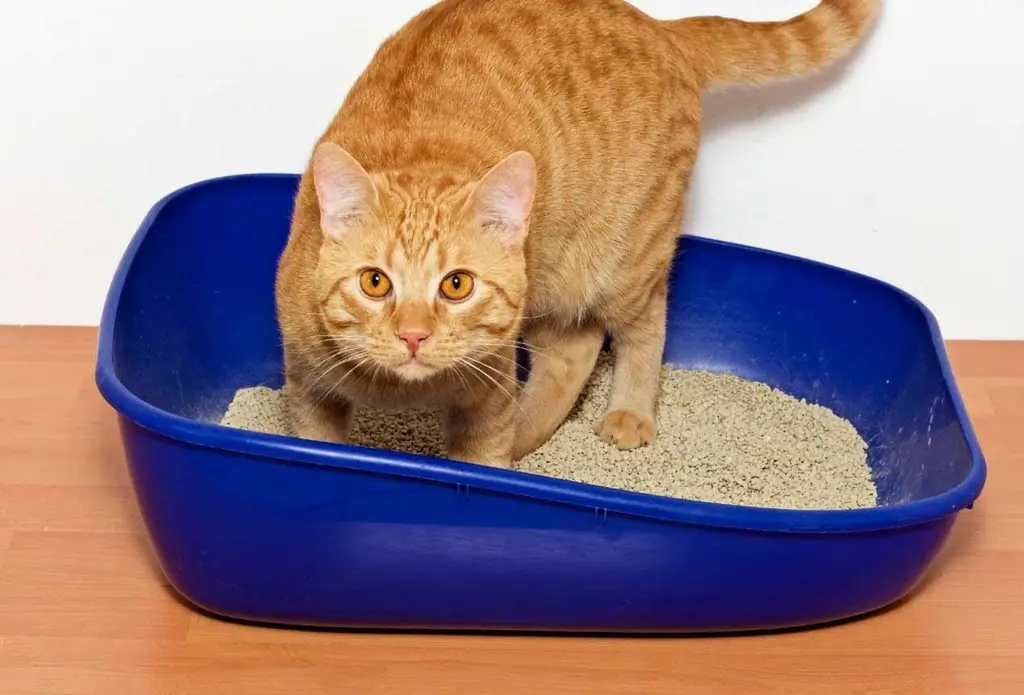
Table of contents:
- Author Bailey Albertson albertson@usefultipsdiy.com.
- Public 2023-12-17 12:53.
- Last modified 2025-01-23 12:41.
Choosing litter for a cat litter box

The modern pet industry offers a huge selection of litter for cat litter. How to navigate this variety and choose the right product for your pet? Indeed, in this case, it is not only the price-quality ratio that is important, but also many other factors, for example, safety, efficiency and ease of use.
Content
- 1 Using cat litter
-
2 What are the types of fillers
-
2.1 By operating principle
- 2.1.1 Clumping
- 2.1.2 Absorbent
-
2.2 By composition
2.2.1 Table: Pros and Cons of Different Cat Litter Formulations
-
-
3 Selection criteria
- 3.1 Video: tips for choosing a filler
- 3.2 Granule sizes
- 3.3 Ability to absorb moisture
- 3.4 Absorption and retention of odor
- 3.5 Ability to flush down the toilet
- 3.6 Presence of flavoring
-
3.7 Hypoallergenic
3.7.1 Video: How to choose a safe and practical cat litter
-
3.8 What to choose for kittens
3.8.1 Video: Which litter should not be used for kittens
-
4 Review of popular brands of fillers
4.1 Table: comparing famous brands of tray fillers
-
5 How to apply correctly
5.1 Video: how to use the filler correctly
- 6 Reviews
Using cat litter
It seems that until recently we poured either ordinary sand or an old newspaper torn into small pieces into a box adapted for a cat litter box. Such forced creativity, fortunately, is a thing of the past. Now in any pet store there is a large assortment of a wide variety of fillers, differing both in their properties and in price. Which one should you give preference to?

Modern litters for the tray are very diverse.
What are the types of fillers
When choosing a litter for your cat, do not immediately purchase large-volume packages - it may happen that your pet does not like this product for some reason. Buy the smallest sachet to get you started and test it out in practice.

Don't buy a slice of a large bag of filler
By the principle of action
All litters for trays are divided into two large groups: clumping and absorbent. Each of these types has both advantages and disadvantages.
Clumping
Upon contact with a liquid of this type of filler, moisture penetrates into the porous granules and sticks them together. This creates small, hard lumps that can be removed very easily from the tray. Thanks to this, the filler does not require complete replacement, but only partial cleaning, which ensures the economy of this product. Low-quality cheap fillers clump much worse, and also poorly retain odors.

Dense lumps of litter can be easily removed from the tray
Absorbent
Wood absorbent fillers are very popular - primarily due to their low cost and natural composition. Mineral fillers “work” more efficiently than wood fillers - they absorb moisture and specific odors better, keep them longer, and are not much more expensive. It is worth paying attention to the quality of mineral fillers - the simplest and cheapest of them, when wet, turn into an unpleasant-looking slurry that contaminates your pet's paws and spreads throughout the house.

Cats generally like wood litter
Most absorbent litters have a common disadvantage - they generate dust when poured into the tray. Small particles from the air enter the cat's lungs and can cause an allergic reaction. This phenomenon occurs because during storage and transportation, soft granules rub against each other and are partially destroyed, turning into fine and light dust.
By composition
All litters are different in their composition, as are the preferences of cats in this delicate matter. And as a result, your pet will make the final decision on the choice of such an important product. And your task is to tactfully push him to the right decision, for which you have to study what types of fillers are in their composition, what are their advantages and disadvantages.

Fillers of different composition "work" differently in the tray
Table: Pros and Cons of Various Cat Litter Formulations
| Filler type | Structure | pros | Minuses |
| Mineral | crushed minerals of volcanic origin |
|
|
| Clay | granules from European and Asian bentonite clays |
|
|
| Woody | flakes or granules from plant fibers - wood of various species |
|
|
| Silica gel | crystalline granules of dried silica gel - silicon oxide |
|
|
| Corn | corn cob granules |
|
|
| Herbal | dried and pressed into granules meadow grasses |
|
|
Criterias of choice
The main criterion for choosing litter for a cat litter box is how much it suits your particular pet. Some cats react negatively to the change of the usual litter and even go on strikes, refusing to use the litter box. You should also pay attention to the following factors:
- environmental friendliness and safety of the composition for people and animals;
- convenience and efficiency of use;
- profitability.

Buy only high-quality litters that are safe for your pet
Video: tips for choosing a filler
Granule sizes
Fillers of various types are available in large, medium or small granules. The smaller the granule size, the higher the efficiency of the filler, especially the clumping one. In addition, the small size of the granules is most often liked by cats - when raking them, the animals experience pleasant tactile sensations and do not injure their paws. For kittens it is recommended to use only small or medium sized pellets.

Kittens prefer fillers with fine granules

Granule size does not really matter
In general, the size of the granules does not matter much, only some cats have their own preferences in this regard. Large-sized granules are more suitable for long-haired breeds, which do not get tangled in the wool, do not stick to the paws and do not spread around the apartment.

Large pellets of litter are suitable for cats with long hair
Ability to absorb moisture
The absorbency of various fillers depends primarily on the material from which they are made. Modern silica gel fillers are the record holders in their ability to absorb and retain liquids - they are capable of absorbing an amount of liquid equal to their own volume.

Silica gel fillers are gaining popularity
Odor absorption and retention
The absence of unpleasant odors in the house is one of the main requirements for any type of filler. Affordable wood fillers, when soaked, retain not only moisture, but also odors. If such fillers are made from coniferous wood, then in the process of use they flavor the air of the room in which the tray is located.

Mineral fillers are excellent at retaining odors
They well lock odors and clumping fillers, made from clays and minerals. Zeolite filler also quickly solves the problem with specific odors, but not for long - it has to be completely replaced quite often in the tray. Synthetic silica gel filler works great at stopping odors - despite its high price, this modern product is consumed economically.
Flush down the toilet
Even if the instructions for the filler say that after use it can be flushed down the toilet, try to dispose of this product in some other way. After all, there remains the risk of clogging the sewer pipes, which can be a very serious problem for both you and your neighbors.

Try to flush used fillers down the toilet
However, the manufacturers themselves do not recommend pouring most types of fillers down the drain, in particular:
- all clumping;
- mineral;
- silica gel.
The presence of a flavoring agent
Cats don't always like the scents that we like. Animals are acutely aware of smells and may refuse to use filler, the manufacturers of which have overdone its aromatization. Citrus aromas, especially orange, are absolutely not suitable for most cats. But the delicate scent of lavender, on the contrary, usually attracts them.

Many cats are picky about the smell of litter
Hypoallergenic
For the most sensitive cats with a tendency to allergies, there are litters on sale, on the packaging of which there is a special mark: "Hypoallergenic product". These are products from various manufacturers, but they always have a 100% natural, environmentally friendly composition. Such fillers are not only completely safe for your pet's health, but also do not pollute the environment.

For sensitive cats, only hypoallergenic litter is suitable.
Look for hypoallergenic products from the most reputable brands; such fillers can be of different composition:
- woody;
- clay;
- mineral;
- corn;
- herbal.
Video: how to choose a safe and practical cat litter
What to choose for kittens
When choosing a litter for kittens, you need to take into account that many species do not suit them for safety reasons. Cat children, like all sorts of babies, are ready to play with everything that only falls into their paws, and at the same time try unfamiliar objects with their teeth. Filler granules are no exception, but having "feasted" on them, the baby can create quite serious problems for himself: at least clog the stomach, or even provoke a dangerous disease. In this sense, you should be especially careful with clumping fillers.

Choose litter for small kittens with care
Video: which filler for kittens can not be used
Review of popular brands of fillers
There is high competition in the pet products market today, which has not bypassed the production of litters for cat litters. The choice of quality and relatively inexpensive products is very large. We offer to compare the properties of goods from the most popular brands.

Your cat is the ultimate litter box expert
Table: comparing famous brands of tray fillers
| Name | What does it consist of | Basic properties | The cost |
| Ever clean | high-quality clay base with vegetable extracts and activated carbon |
|
6-liter pack - 860 rubles. |
| "Golden cat" | shredded corn cobs |
|
6-liter pack - 150 rubles. |
| "Barsik" | wood pellets |
|
packaging with a volume of 4.54 liters - 96 rubles. |
| Cat's Best Eko Plus | wood fiber flakes |
|
|
| Zoonik | bentonite clay pellets |
|
packaging with a volume of 5 liters - 134 rubles. |
| "Clean paws" | environmentally friendly clay |
|
|
| SuperCat | pressed softwood fibers |
|
a package weighing 10 kilograms - 683 rubles. |
| "Kuzya" | fine granules of organic sedimentary minerals |
|
packaging with a volume of 4.5 liters - 335 rubles. |
How to apply correctly
It is very easy to follow the culture of using the filler. For lumpy fillers, it is sufficient to regularly remove the formed lumps from the tray and add fresh granules to the optimal volume. It is recommended to keep the litter level in the tray at the 5 cm mark. For absorbent litters, the frequency of replacement depends both on the quality of the product and on your cat's requirements.

Replace the litter in the tray promptly
Video: how to use the filler correctly
Reviews
The best litter box is the one your pet likes. Most owners try different types and brands before choosing exactly what they want. Note also that many cats are capricious and conservative in this regard - count on the fact that the chosen filler will need to be used constantly.
Recommended:
What Litter For Cat Litter Are And How To Choose The Best One + Reviews And Videos
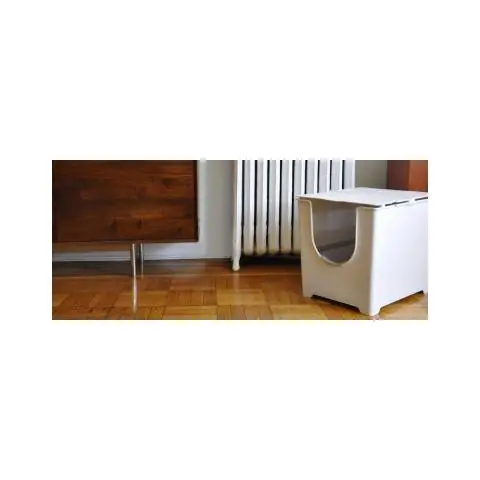
How to choose the perfect kitty litter. Criterias of choice. Customer reviews. Rating of the best manufacturers. Video
Silica Gel Cat Litter: Pros And Cons, How To Use And Dispose Of Silica Gel, A Review Of The Best Brands, Reviews
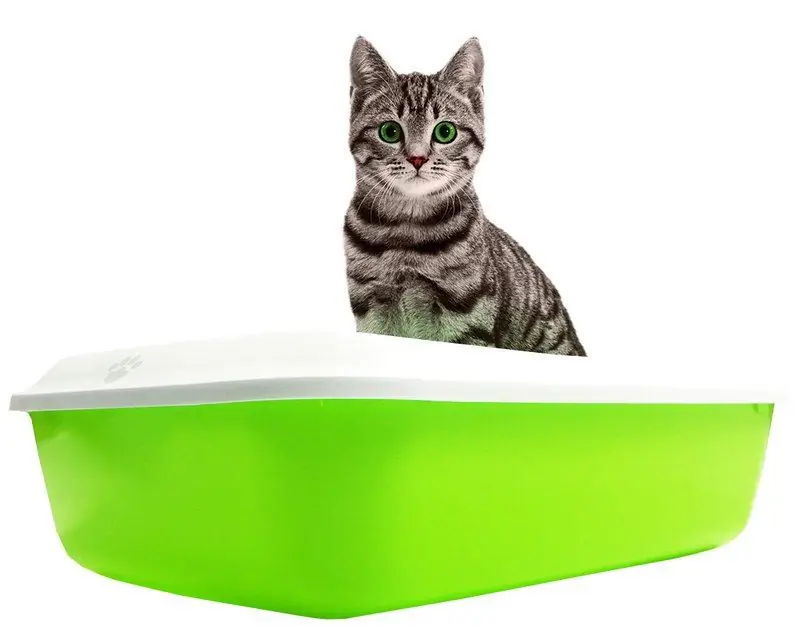
What is silica gel. Silica gel properties, pros and cons. How to use silica gel filler. Silica gel training for your cat. Popular brands
Cystitis In Cats And Cats: Symptoms (blood In Urine And Others) And Treatment At Home, Medications (pills And Others), Veterinarian Advice
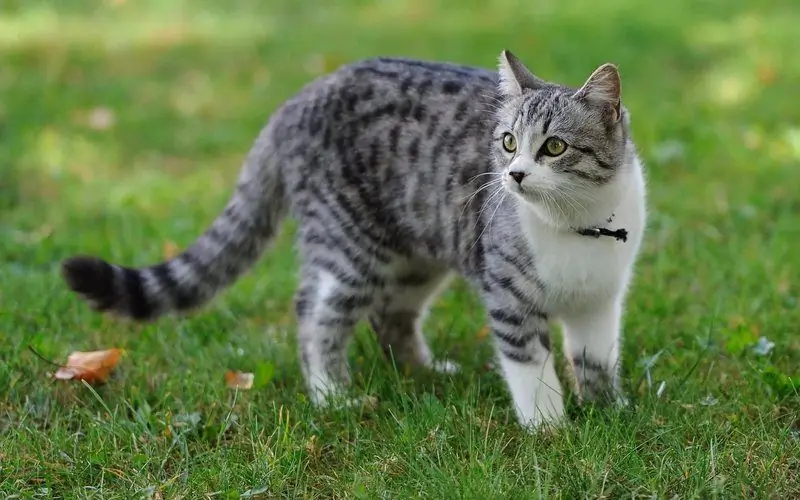
What causes cystitis, its symptoms, course forms, diagnosis, treatment. Caring for a sick cat, prevention of cystitis
Tray For A Cat Or Cat, Features Of Choosing A Cat Litter (open, Closed, House, Automatic, Dry Closet, Other Types), Reviews
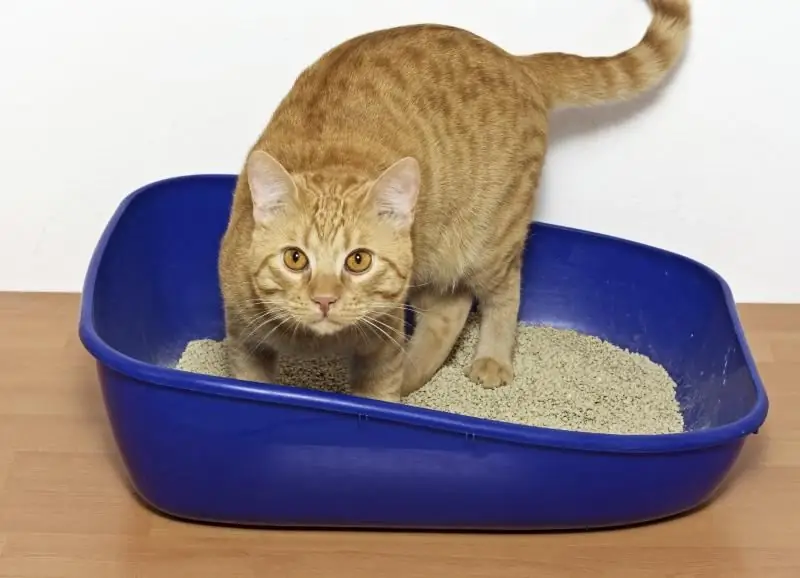
Types of cat litter: classic, mesh, house, automatic. What to look for when choosing. How to train your cat to litter. Owner reviews
Shampoo For Cats: Types (dry, Medicinal And Others), How To Choose The Most Suitable One For Your Pet, How To Apply, Reviews
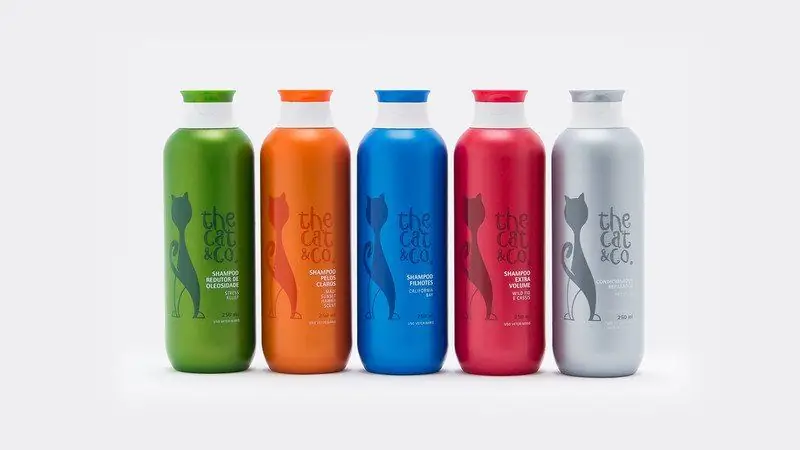
What are the shampoos for cats. How not to be mistaken when choosing a product. How to use shampoo
